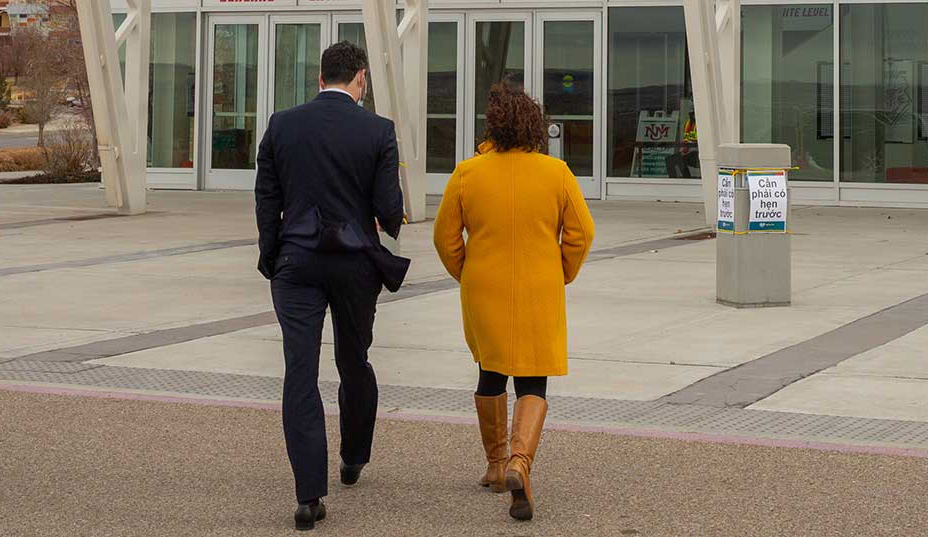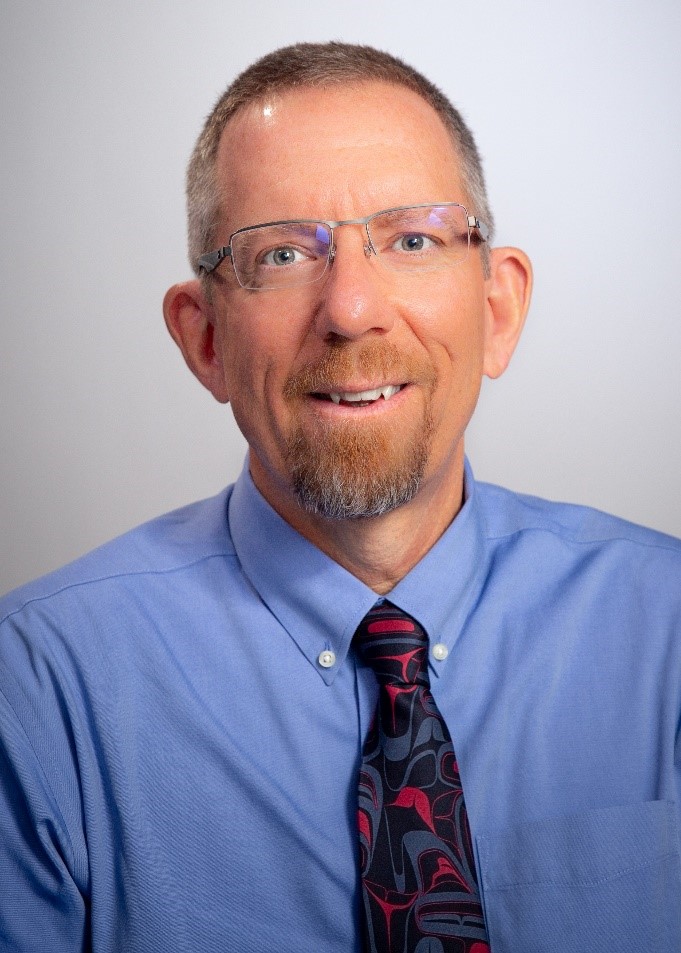Preparing for Disaster: UNM Hospital Participates in Region-Wide Emergency Training

Baby Steps
Psychologists Offer Simple Tips for Combating Post-COVID Anxiety
Baby steps. It all starts with baby steps.
Many New Mexicans are struggling to deal with the burnout that came with COVID-19. Some watched as loved ones became ill, or they became ill themselves. Relationships were damaged by arguments over what is safe.
For some, COVID led to job loss; for others it meant living through painful absences from family. Everyone now seems to struggle with sleep and how to deal with stress and anxiety.
University of New Mexico psychologist Christopher Morris, PhD, clinical director of the Health Sciences behavioral health clinic in Rio Rancho, and fellow UNM clinical psychologist Jaye “Jaxcy” Odom, PsyD, see the effects of the pandemic on their patients every day.
“Loss comes in all sorts of forms,” says Odom, who practices at the Sandoval Regional Mental Health Clinic located on the UNM Rio Rancho Health Sciences campus. “We have lost opportunities in every aspect of our lives.”
The recent lifting of restrictions has meant people are beginning to take back different aspects of control over their lives, she says.
“It is important to reconnect with people and find those ways that we can feel more in control,” Odom says. “But we do need to look at the fact that many people are exhausted.”
And it is also important to note that kids may be struggling with anxiety as well, she adds.
Taking a pause – to acknowledge what we collectively and individually have been through – is an important first step, yet it can be hard for people to do.
“Sometimes we feel guilty or selfish for longing for these lost activities from before the pandemic when others have suffered so much more and there are all these big losses around us,” she says.
So, how do you get yourself and your kids back on track? What ways do parents have to help their kids acclimate and reconnect socially?
“This is a huge issue,” Odom says. “Structure is so important for children. Children were very lucky if they had an opportunity to be around other children during the pandemic. But many weren’t able to get that, and they lost a lot of their connections with their schedules and families.”
An important variable in getting kids back to “normal” lies in creating schedules and structure, Odom says.
“In general, I really encourage parents to begin with any activity their child really enjoys,” she says. “Get that back into their life and then try creating structure back into their lives as best you can. If you can get them involved with favorite activities – in soccer or chess games or robots, whatever they are interested in – that can impact that social connection in their lives.”
Adults also need that structure in their own lives, but don’t expect to rebuild that pre-pandemic life quickly, Morris says.

Doing things that provide structure and having a schedule is a big deal and it may take doing things in small steps
Feeling sadness in the face of loss is reflective of just how important that loss is to you, Morris says. “It is a natural feeling. You wouldn’t give up the experience that is causing that sadness today. That person or activity or special place is a part of your life.”
Accepting difficult emotions is the first step in keeping some connection with them, he adds.
“Maybe you can’t connect in the same way that you did in the past, but there are other ways to keep something that is meaningful to you,” he says. “It can’t take the place of what we have lost, but something that you do value that you can do to keep your energies up and that you can build on.”